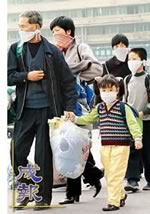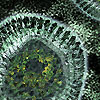The H5N1 virus may well flourish because of political as well as biological conditions.
There is currently an international agreement in place whereby all countries share samples of avian flu virus collected from local incidents. This is an effort to track the various mutations that the virus is undergoing to anticipate how close we are to a mutation that allows human-to-human transmission, and to construct an effective anti-viral for it. At this time, we are told, there are seven or eight sub-varieties of the virus in various stages of adaption to a new host - us.
However, one should be cautious in expecting a pure motive of mutual aid and benefit to be the primary motivator between nations. Nor do we have ample evidence of world wide governments being transparent and forth coming with all pertinent data.
Reports today describe the Indonesian Health Minister accusing the United States of using bird flu samples to produce biological weapons, and consequently Indonesia refuses to submit viral samples to the World Health Organization. Their suspicions have prompted Indonesia to state they intend to resume sharing of bird flu virus samples only if nations agree on a fair and equitable framework. The United States denies Indonesia's accusations.
Indonesia is reported to be the nation worst hit by bird flu. They have held back virus samples since last August and intend to continue to do so until they receive guarantees from richer nations and drug makers that poor countries get access to affordable vaccines derived from their samples.
Indonesia claims that foreign nations misunderstand their non-compliance in the sharing of viral samples, "but concrete cooperation has to be based on fairness."
WHO specifies that sharing samples is vital for tracking the H5N1 virus and for developing vaccines against a potential pandemic. Meetings to work out a new virus sharing draft with key nations are scheduled to take place in March or April.
Thursday, February 21, 2008
Subscribe to:
Post Comments (Atom)







No comments:
Post a Comment